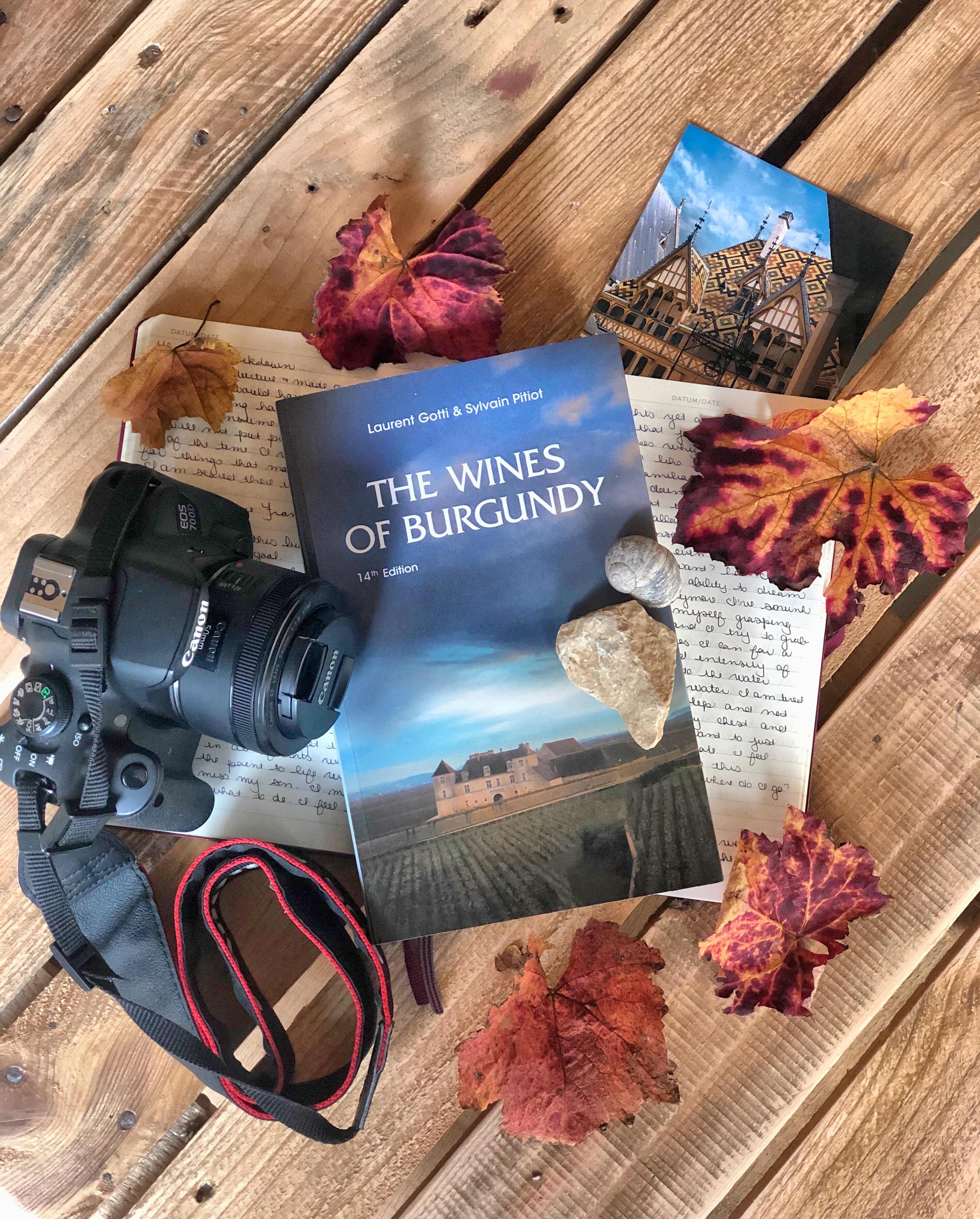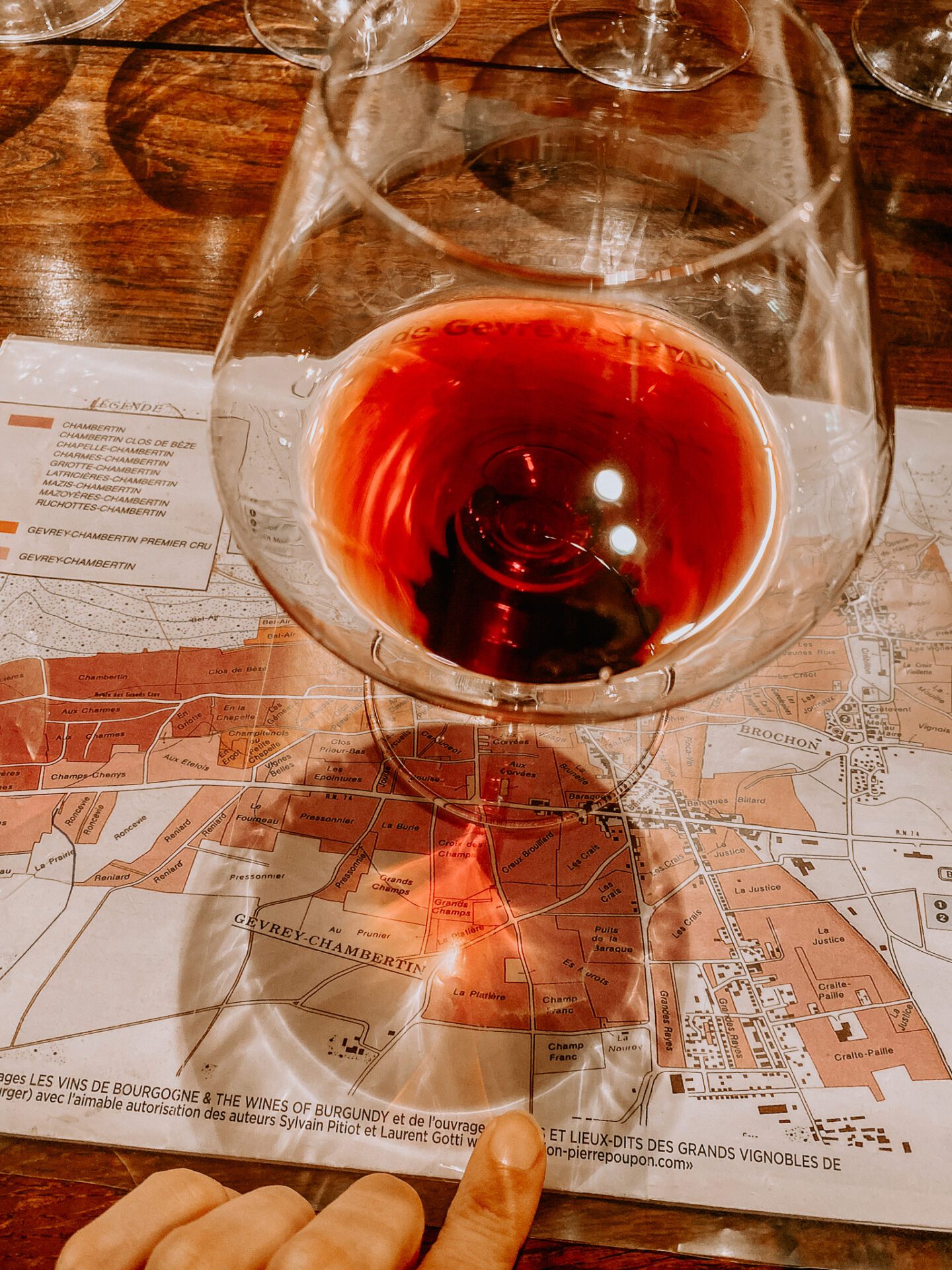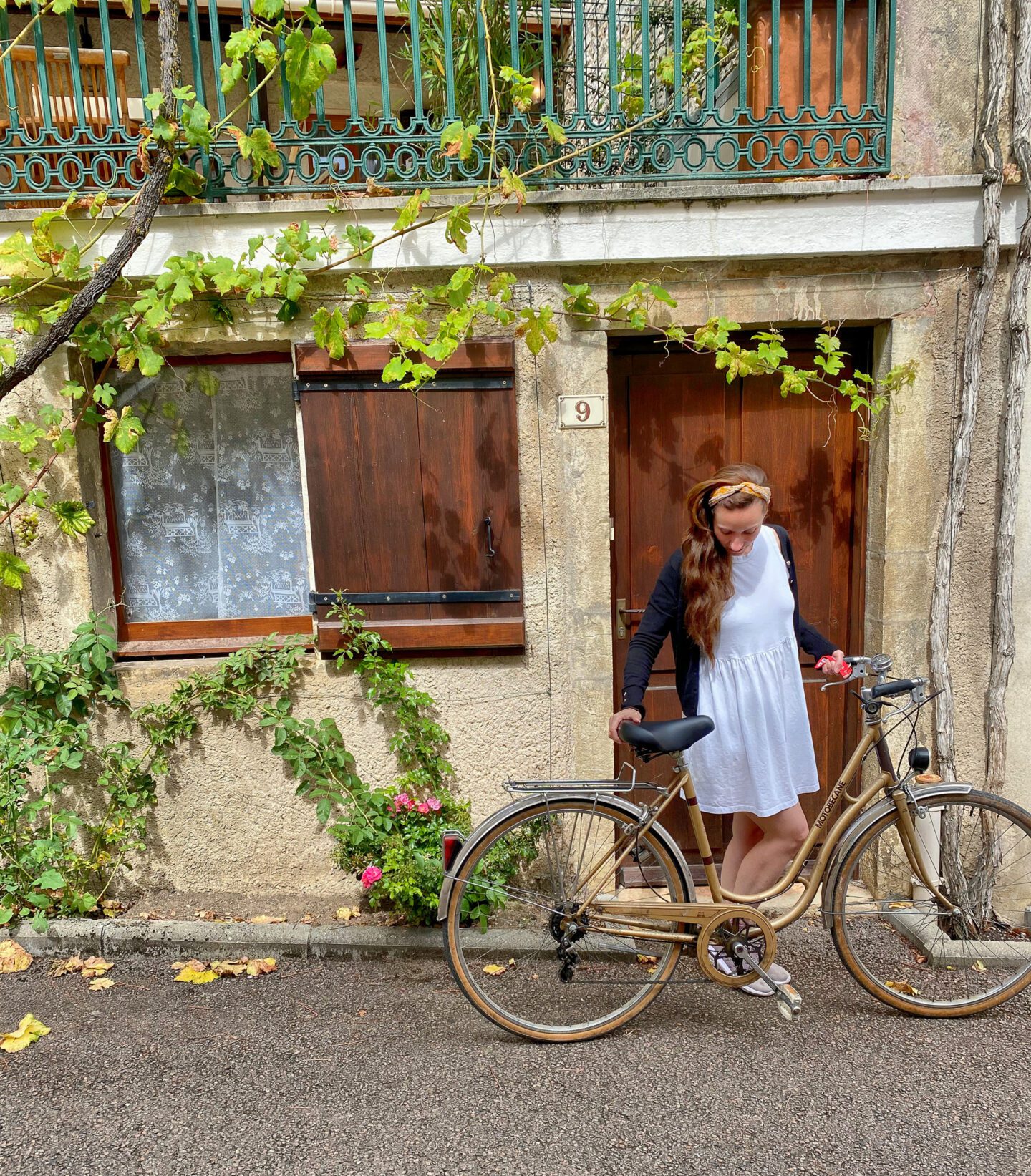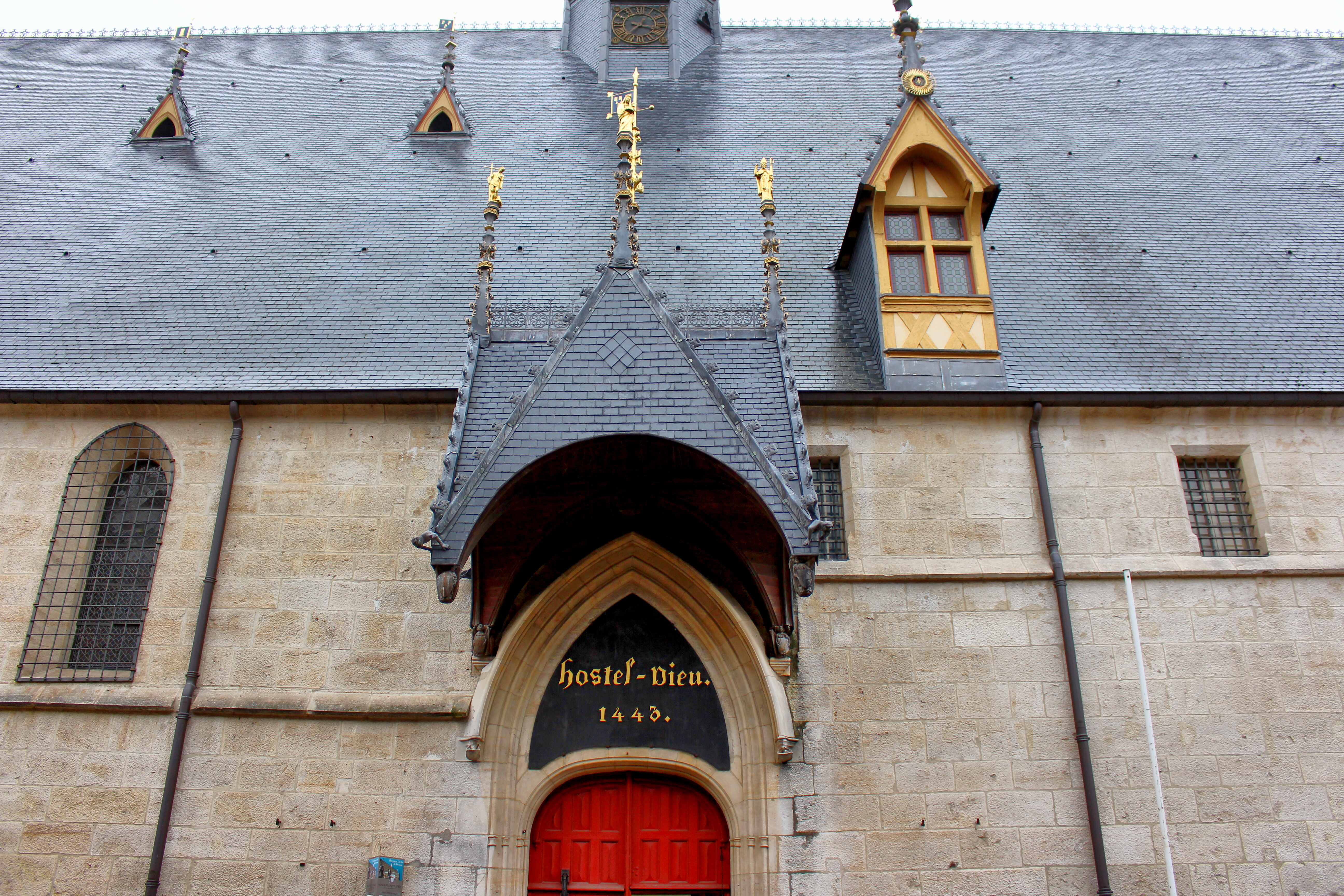Bourgogne is more than just a wine-making region – it’s a place that is rich in history, culture, and natural beauty

Bourgogne is a region in France that is iconic in the world of wine. Known for its world-class Pinot Noir and Chardonnay, it’s no surprise that so many wine students flock to this region to learn more about these classic grape varieties. But Bourgogne is more than just a wine-making region – it’s a place that is rich in history, culture, and natural beauty. From its rolling hills and picturesque vineyards to its charming villages and delicious cuisine, there is so much to discover and explore. It’s no wonder that I fell in love with this region the first time I came to France. After several years in Paris, I decided to make it my home with my husband, a fellow wine nerd and professional.
For wine students, Bourgogne is truly the “Pinot Noir and Chardonnay Mecca,” offering the perfect opportunity to immerse themselves in the culture and traditions of wine-making. In this post, we’ll share some tips and recommendations for visiting Bourgogne as a wine student.
If you are looking for a quick getaway to Beaune from Paris – check out my weekend guide to Beaune.
Plan in Advance
When it comes to visiting the wine region of Bourgogne, planning ahead is key. As a popular destination for wine lovers, it’s important to book your accommodations, tasting appointments, and transportation well in advance to ensure that you have a smooth and enjoyable trip. And if you want to visit smaller producers or winemakers, it’s a good idea to book a guide to help you navigate the region and make the most of your visit. I just might know a wine education guide or two in Beaune?
Before you go, it’s also a good idea to research the different wine-making regions and appellations within Bourgogne to determine which ones you’d like to visit. Some popular areas for wine students include the Côte d’Or, Chablis, and Mâconnais. See my weekend guide to Chablis
If you’re planning to travel by train, consider choosing one of the major sub-regions so that you can easily visit a variety of producers.



It’s important to note that wine tourism in France is quite different from what you might be used to in the United States or Australia. Winemakers are busy. It’s not uncommon for them to work in the vines, cellar and office on any given day. As a result, it’s not a good idea to just “roll up” or call a day or two in advance hoping to visit a winery. It’s considered rude and disrespectful, and you’re unlikely to get the warm welcome you’re hoping for. Instead, plan your visit well in advance and book your tasting appointments and tours ahead of time to ensure that you get the most out of your trip. There are better seasons than others that coincide with the work in the vineyards and regular holidays.
Get Active! Bike or Hike in the Vineyards
Exploring the vineyards of Bourgogne is a valuable experience for wine students and professionals alike. By physically immersing yourself in the region, it is possible to gain a deeper understanding of the various factors that influence the wine-making process, including soil differences, drainage, and micro-climates. This type of experiential learning can be especially helpful for wine students, as it provides a reference point for further study and will solidify concepts in the mind.
One great way to explore the vineyards is to take a circuit hike or ride a bike through the region. This allows for the opportunity to observe the different appellations and see the various characteristics of the terroir firsthand. You can purchase maps from the tourism office that cover the north to south of the Côte d’Or. I use these regularly myself when I need an excuse to get out of the house or want to find a circuit that is aligned with an AOC I am studying or writing about.


Don’t Forget History
It is important to remember that the wine industry of Bourgogne is deeply rooted in culture and history. By making connections between these elements and the wine-making process, wine students and professionals become more well-rounded. This understanding can enhance appreciation for the many factors that contribute to the production of high-quality wine and aid in the retention of knowledge gained through study. As such, it is essential to take the time to explore the rich cultural and historical context of the region.
- Visit the Hospices de Beaune
- Wine Museum
- Abbaye de Citeaux
- Château Clos de Vougeot


Check Off the Bourgogne Bucket List
It’s understandable if you want to visit some of the more famous wineries and vineyards in Bourgogne – after all, they are iconic and well-known for a reason. But don’t get so caught up in checking off the Bourgogne bucket list that you miss out on the rest of what the region has to offer. Do it first thing so you can take the rest of your time to explore. Sure, it’s fun to get that photo in front of Romanée Conti or Chevalier-Montrachet, but don’t forget about the other incredible sites and vineyards in the region, like Clos Vougeot, the Hill of Corton, and the Hospices. These other gems can be just as exciting and educational as the more famous ones, and they offer the opportunity to learn about local anecdotes, have a unique sensory experience, and gain insights that will help you professionally and in your studies.
Branch Out in Your Tastings
One of the best things about visiting Bourgogne is the opportunity to taste new and exciting wines from producers you may not be familiar with. While it’s certainly tempting to stick with the big, well-known winemakers, it’s worth venturing out of your comfort zone and trying something new. After all, a lot of the wine produced in this region never leaves France, so you have the chance to taste some truly unique and special wines that you might not be able to find elsewhere.
Of course, it’s understandable if you have a special bottle that you’ve been waiting your whole life to taste. In that case, by all means, go for it! But remember, there are so many amazing wines to discover in Bourgogne, and it’s a shame to miss out on the opportunity to try something new and exciting. I know I sound like a broken record but I am advocating for you to have what I believe to be a much richer experience.

If you need a few recommendations for producers to try, feel free to reach out – I’m always happy to share my favorite wines and winemakers with fellow wine lovers.
And I offer wine education guide experiences with my husband Nicolas to enthusiasts, students and professionals. If you want to learn more about our bespoke wine educational tours, please contact me.